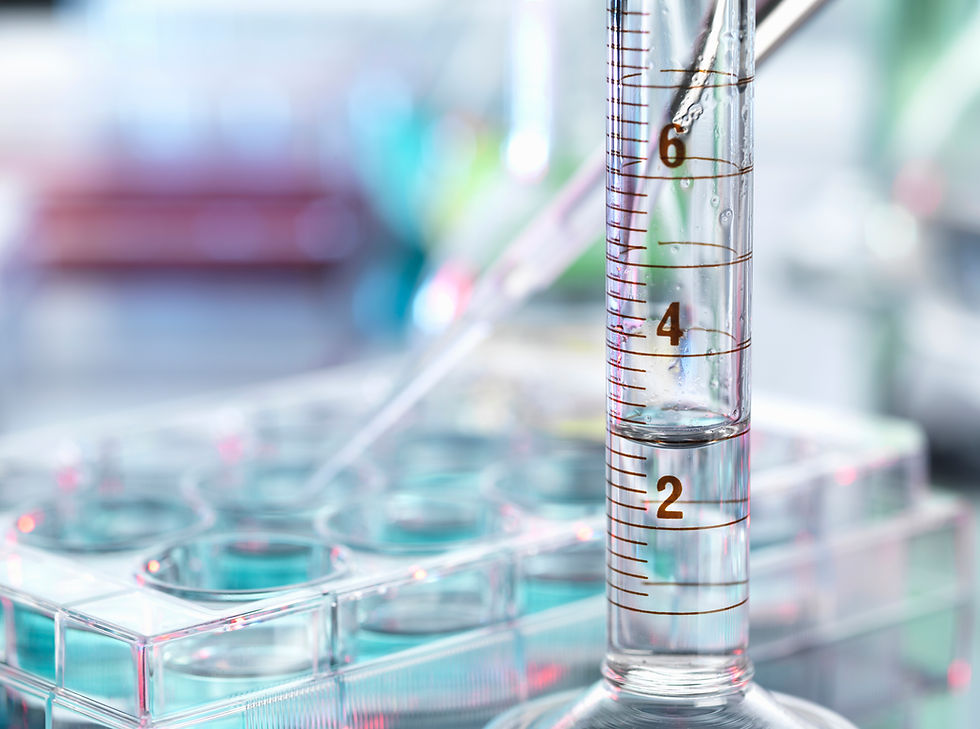Cannabinoids, Beta Caryophyllene, Trauma, Addiction, and Connection
- Cynthia Tamlyn-CCA
- Oct 3, 2017
- 8 min read

Warning this post may get a bit preachy. I apologize in advance and will try to restrain myself. I typically keep my personal beliefs private because I was taught to never mix business and religion/faith. Church was church and business was business and my mama would never allow us so much as to do a cookie sale or anything else in church.
For those of you don't know me please let me introduce myself a bit. I am first and foremost a strong independent woman with a deep sense of faith and strong personal convictions. I can easily be summed up as Missouri born, Texas raised, DC finished and Washingtonian by choice.
I believe very strongly that we must each work out or own salvation with fear and trembling. I also believe we are not to judge each other. We can and should however call out deceitful practices, people, or information as necessary. The scripture allows us to do that and it is our ethical responsibility to do so.
I am also a trauma survivor. I became a clinical aromatherapist to support others whose lives have been touched by trauma. My practice is dedicated to improving their quality of life. My motivation is to be the change I want to see in the world. I want to improve the lives for others with traumatic histories or experiences. I want to empower them to overcome any fear, anxiousness, or insecurity that would otherwise hold them back from living life to the fullest. I want them to realize that they need not worry about anything holding them back. That indeed they are able to achieve their goals and turn their dreams into reality
My ACES (Adverse Childhood Experience Score) is six and would go higher if I counted number of events rather than type of events. You can find out your or your loved ones ACES score here: https://acestoohigh.com/got-your-ace-score/
Additionally I am a brittle epileptic. I live with adult onset idiopathic epilepsy of unknown etiology. We have isolated several triggers including stress, dairy, and illness but no MRI has revealed any anatomical reason for my epilepsy.
I live on the West Coast where the use of cannabis is legal for medical and recreational purposes. I voted against all bills to legalize it because I'm a survivor of a drunk driver who lives with chronic pain and didn't want to have to worry about stoned drivers. I was also highly uneducated on the subject when I made those votes. I'm so grateful other voters were more informed and progressive than I was at the time.
All that said, I have in the years since my state passed legal use of cannabis products, educated myself on the medicinal uses of cannabis; primarily because I was diagnosed with epilepsy at 40 years of age and I wanted to know how it might be able to help with my own healthcare goals. In all things I strongly advise each person to do their own research. We live in the information age. It truly isn't that hard to find legitimate sources for scientific data. I always start at PubMed. If you type in the search bar medical uses of cannabis you'll get 583 results. https://www.ncbi.nlm.nih.gov/pubmed/?term=medicinal+use+of+cannabis
Also, as a certified clinical aromatherapist with many hours of training on the chemistry of essential oils, I feel it is my ethical duty to address misinformation in an effort to protect the public. Recently, I saw one major essential oil network marketing company executive and a different network marketing essential oil company representative touting beta-caryophyllene as a replacement for CBD. I just about lost my mind I was so annoyed at this gross misrepresentation.
That statement is the equivalent to saying wine is equivalent to vodka. They're both beverages produced through a fermentation and distillation process but they're vastly different entities with very different effects on the body due to their chemistry. Doctor's have been known to recommend a glass of red wine for some patients where it is indicated. I have never heard a doctor advise a person to take a shot of vodka for medicinal purposes.
The same is true for cannabidiol and beta-caryophyllene. You can't make blanket statements to say one is better than the other. It depends on what the physiological purpose for using either substance is to determine which is the better chemical constituent to focus on.
A little over a year ago I started using CBD oil to support my neurological health because of the effects of the anti-convulsant medications my neurologist had me on. The side effects of all the anti-convulsants I've researched have been something I take into careful consideration. My neurologist works with me and is aware of my CBD use. I have flat out refused to try some anti-convulsant (seizure control) medications because of the increased risk of suicidal ideation. As a sibling survivor of suicide I will not knowingly put myself at risk for the sake of my husband and children. I have never once had any sort of "high" from my use of CBD oil.
To be clear I do not use CBD oil in my practice. I feel that I do not have adequate training to be comfortable advising someone on the proper use of CBD. I do however have extensive knowledge on the subject and if you don't want to wade through the copious results on PubMed I highly recommend this book by Elizabeth Ashley a British Aromatherapist with a lifetime of aromatherapy and botanical medicine experience. https://smile.amazon.com/gp/product/1976296625/ref=oh_aui_detailpage_o00_s00?ie=UTF8&psc=1
Beta caryophyllene is found in percentages over 25% in several essential oils. If you do a search on the Essential Oil University database you'll find 50 essential oils that have 25% or more beta caryophyllene. One network marketing companies attempt to promote Copaiba as "soothing anxious feelings" due to the beta caryophyelle content is misleading. Copaibas primary chemistry components, including beta caryophyllene are sesquiterpenes. Sesquiterpenes are chemical compounds with fifteen carbon atoms. Sesquiterpenes in general are good oils to help one feel grounded because those fifteen carbon atoms are heavier chemical compounds. If there is an ability for Copaiba to ‘sooth anxious feelings’ it is due to the overall chemistry of the oil not one specific compound.
Beta caryophyllene's therapeutic properties include anti-inflammatory, analgesic, immune supportive, and anti-spasmodic. Therefore beta caryophyllene is best used for physiological issues. The cannabinoid receptor beta caryophyllene is reported to act on is CB2. However, beta caryophyllene exhibits a weak binding affinity to the CB2 receptor. To learn more about CB2 and how it works check out this study from PubMed. https://www.ncbi.nlm.nih.gov/pmc/articles/PMC4624216/
Using Cannabinoid therapies from cannabis is not a sin. It's not something one should be secretive about or worried about discussing openly. I dare say if you don't feel it's right for you then you should honor that. That's between you and your Creator. However, telling someone or even anyone else who is fighting cancer or who lives with epilepsy, MS, Parkinson's, or chronic physiological pain with a neuronal link that Copaiba (Copaifera officinalis) is what they should use in place of cannabis derived therapies is judgmental, cruel, and irresponsible.
The Bible clearly tells us there is nothing new under the sun. It also tells us that G*d provided for all our needs. Let's take the judgment out of responsible, sustainable, and educated use of cannabis based therapies. We get digitoxin from Foxglove and no one makes a stink about that. Foxglove in it's natural state is toxic, but when properly worked with in a lab can have health benefits.
Cannabis derived products when used under the direction of a properly trained and licensed health care provider who has studied the science of how each of the cannabinoids within cannabis work within the body and the body's endo-cannabinoid system is a gift from G*d. It's no different than using thyme, oregano, coffee, basil, tea, clove, cinnamon or other plants from which medicinal constituents can be isolated.
Using cannabis products under the supervision of a licensed health care provider with proper training on cannabis products is effective at fighting addiction. The root of addiction is one of disconnection. If a person feels alone, at drift, misunderstood they are more likely to develop addiction issues as they struggle and seek ways to medicate their emotional pain. Cannabis is not a "gateway drug" as it is often referred to. In my lifetime I have crossed paths with many who "used to smoke a little weed" and it never developed into anything else. Using cannabis based therapies like CBD can help calm a person's anxiety when it's not based in other mental health issues.
Studies are being published with increasing frequency on the use of cannabis derived medicines to counteract the opioid crises in the US. Newsweek published an article on it earlier this year. http://www.newsweek.com/opioid-marijuana-legal-states-hospital-overdose-addiction-575385
If you feel judgment in this post I apologize. This is a bit of a hot issue for me. I do my best to live and let live. However, in the last five years I have done a complete 180 degree turn in my view of this plant and it's therapeutic uses. I have learned so much about the medicinal uses for children and adults that it really irritates me to see it demonized. What message does that give to the cancer patient whose life is being sustained or quality of life improved through the use of cannabis products? What message does the pediatric epileptic take away when they hear people badmouthing cannabis and they know that the only thing that stops their seizures is derived from cannabis.
As a clinical aromatherapist I am angered and appalled, but not the least bit surprised at the tactics used by networking marketing companies to sell their products. Please do your own research. Think for yourself "Would I still feel this way if my child, my spouse, my own life was on the line?" Would you honestly be able to say to yourself, 'I'm going to not use cannabis, a G*d created plant, to fight my cancer or stop my seizures?' Also, look at the whole picture. Copaiba is a tropical rainforest tree. It can grow over 19’ tall. What is the environmental impact of mass marketing this botanical resin from limited environments? What is the impact for the people who live in it's growing region and have depended on this tree for medicinal purposes for generations? I dare say Copaiba will join the endangered list with frankincense, agar wood, spikenard and others if we do not take heed and learn from history. CBD is much more sustainably produced and has far less environmental impact in sourcing it from place of growth to end consumer.
When working with children or adults who have developmental trauma or post traumatic stress disorder some forms of cannabis derived products can be helpful. Knowing what the underlying cause is and how that cause manifests is critical to determining the best method of use for your familial needs. If your state has licensed medical dispensaries find one and call to ask them to refer you to a licensed provider in your area. If your state hasn't legalized medicinal use contact the folks at Realm of Caring to get help with the physiological supports of cannabis derived products. Because yes cannabis is natural, but so is foxglove, belladonna and arsenic and you should only use it after you have educated yourself and partnered with an educated healthcare provider. Otherwise you are taking unnecessary risks for yourself or your loved one.
©2017 Cynthia Tamlyn-CCA
DISCLAIMER
THIS BLOG IS FOR INFORMATIONAL & EDUCATIONAL PURPOSES ONLY.
THE INFORMATION CONTAINED HEREIN DOES NOT CONSTITUTE, PREEMPT, OR SUBSTITUTE FOR PROFESSIONAL MEDICAL ADVICE NOR IS IT INTENDED TO DIAGNOSE, CURE, TREAT, OR PREVENT DISEASE OR HEALTH ISSUES.
ALWAYS CONSULT WITH A QUALIFIED MEDICAL PROFESSIONAL BEFORE USING OR APPLYING ANY OF THE SUGGESTIONS CONTAINED ON THIS BLOG.
ALL RIGHTS RESERVED.




















Comments